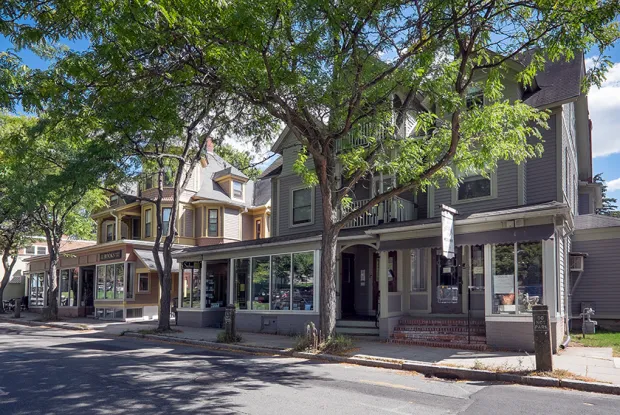Honoring the Breadth of Smith History
Campus Life
Three campus houses have been named for women who had an impact at Smith—and beyond
Published July 23, 2024 (UPDATED: October 8, 2024)
Two additional Smith locations have been named in honor of a staff member and an alum who made their mark on college history.
The Laura Rauscher Crewhouse Ramp near Paradise Pond has been named in honor of the former director of Smith’s Office of Disability Services (now the Accessibility Resource Center), who passed away in 2023. Rauscher also served as Smith’s first senior policy advisor on disability access and inclusion.
Park Annex has been named Yolanda King House in honor of Yolanda Denise King ’76, an activist, actress, author, and the eldest child of civil rights leader Martin Luther King, Jr. and Coretta Scott King.
In a move that more fully acknowledges Smith’s history, three college houses have been named in honor of staff and alums who have contributed to positive social change—both on campus and beyond the Grécourt Gates.
House names the board of trustees approved in May are:
Granville House
Parsons Annex has been named Granville House in honor of mathematician Evelyn Boyd Granville ’45, the second African American woman to receive a Ph.D. in mathematics from an American university (Yale) and one of the “hidden figures,” whose pioneering work in computing helped NASA land the first Americans on the moon.

Lee House
54 Green Street has been named Lee House in honor of Carrie Lee, class of 1917. When she arrived at Smith, Lee, a Black first-year student, was denied on-campus housing and, instead, lived with a professor before being assigned a room in Albright House. She went on to become a teacher and an advocate for the rights of women and people of color.
Rothman House
150 Elm Street has been named Rothman House in honor of Eleanor Rothman, founding director of Smith’s Ada Comstock Scholars Program for nontraditional age students. Since the program was established in 1975, a total of 2,482 women ranging in age from their 20s to their mid-80s have earned Smith degrees as Ada Comstock Scholars. Rothman directed the program for 23 years.
Professor Floyd Cheung, Smith’s vice president for equity and inclusion, says the impetus for the names came from students, who wanted to find more inclusive and affirming ways to identify residences known only as annexes or by street addresses.
“We listened, agreed, and then worked with the president’s leadership team to develop a process” for selecting names, Cheung says.
A committee of students, faculty, and staff was convened to consider nominations and make recommendations to the president. More than 200 nominations were submitted by members of the campus community and alums. Names accepted by the president were then vetted by the college’s Gifts Policy Committee and sent to the board of trustees for a final decision.
The naming process “gave us the opportunity to add diversity to house names across campus,” Cheung says. For example, “while many are named after women, only the Friedman Apartments were named after people of color as of 2023.” (In 2024, Haynes House was named after a Black alum, pioneering mathematician and educator Martha Euphemia Lofton Haynes, class of 1914).
Beverly Morgan-Welch ’74, who chaired the trustee committee that approved nominations, says the naming process extends the notion of who is commemorated in campus buildings and spaces—the most “public expression of the college’s collective past,” as the call for nominations stated.
“This is a powerful moment for Smith,” Morgan-Welch says, honoring not only the place of particular women in Smith history, “but all of the students who have lived in these houses and the staff who have worked in them and have contributed so much over the years to the life of the college.”
Temporary plaques with the new house names were scheduled to be installed this month, followed by permanent markers.

